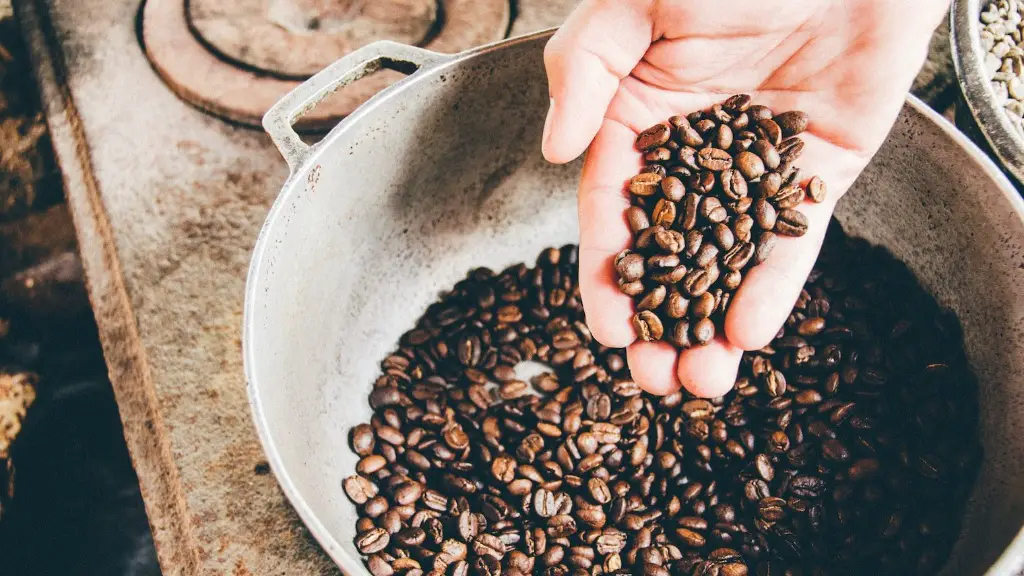Whether you’re a new mom or a veteran, you’re probably familiar with the need to be careful about what you eat and drink while breastfeeding. With many us relying on a daily cup of coffee to keep us going, there’s one question many moms are asking: Is it ok to drink decaf coffee while breastfeeding? The short answer is yes. But let’s take a deeper look into understanding why this is the answer.
Decaf coffee contains far less caffeine than regular coffee. A typical cup of coffee contains about 80–175 mg of caffeine, compared to about 2–10 mg per cup of decaf coffee. This means that if you’re drinking decaf coffee, it is unlikely to have any significant negative effects on the breastfed baby.
Many moms worry that the caffeine in decaf coffee can still make it into their breast milk and be transferred to the baby. But research suggests that the amount of caffeine that can be passed on to the baby is extremely small and unlikely to interfere with infant’s development.
If you are worried about caffeine, consider reducing your decaf coffee intake. If more than one cup is consumed in a day, it might be best to refrain altogether. Remember that some foods and drinks are still likely to contain caffeine even when they advertise themselves as being decaf, so it is important to double-check the ingredients. It might be worth avoiding decaffeinated teas, energy drinks, and colas altogether, as these are not suitable during breastfeeding.
Most experts agree that for most people, a daily cup of decaf coffee is unlikely to have any deleterious effect on the baby. Of course, it is important to consider individual circumstances when making such a decision, so it is always best to check with your doctor if you have any concerns. Where possible, it is best to try to stick to decaffeinated versions of coffee-based drinks.
Moreover, caffeine can affect your own health. It narrows blood vessels, raises blood pressure, and speeds up your heart rate. This may cause exhaustion and sleep deprivation, so it’s important to ensure you keep your caffeine intake to a minimum.
Environmental Impact
Decaffeination is a labor-intensive process that requires the use of water and potentially toxic chemicals, leading to a range of environmental risks. This means that the environmental impact of decaffeinated coffee is larger than that of regular coffee. It is important to bear this in mind when deciding how much decaffeinated coffee to drink.
Softer decaffeination techniques, such as the water-based CO2 method, have lesser environmental impacts than traditional techniques. Additionally, choosing coffees that are certified organic may further reduce environmental risk. These certifications do not guarantee that the coffee was decaffeinated using environmentally-friendly methods, but it does guarantee that the beans were grown and harvested with sustainable practices.
Whenever possible, it is always best to choose organic decaffeinated coffee that has been produced using eco-friendly processes. This will reduce environmental impacts and reduce the risk of contaminants in the product itself.
Cancer Risk
It is important to remember that decaffeinated coffee is not totally caffeine-free. A typical cup of decaf contains approximately 2-10 mg of caffeine, which means that some caffeine is still present. While this is unlikely to have any effect on the breastfed baby, it may be enough to affect the health of pregnant and lactating mothers.
Research suggests that the caffeine in decaf coffee may increase the risk of certain cancers and other health conditions. However, the amount of risk depends on the amount of caffeine and other chemicals present in the product. It is important to check the ingredients before drinking any decaffeinated coffee and to limit consumption to only one cup a day.
Oral Health
Drinking hot beverages, or beverages that contain sugar or high levels of caffeine, can also damage oral health and increase the risk of tooth decay and other oral problems. It is also important to ensure that any hot beverages, including decaf, are chilled before drinking them. This prevents any dental damage and helps protect the teeth and gums.
Additionally, bacteria present in hot and cold beverages can cling to the teeth and gums, leading to gum disease and tooth decay. This is why it is important to use natural sugar and artificial sweeteners such as stevia and erythritol when sweetening any hot beverages. This helps to prevent the growth of harmful bacteria in the mouth.
Nutrition
It is important to remember that drinking decaffeinated coffee does not provide any nutritional benefits for the baby. Therefore, it is important to take other measures to ensure that the baby receives proper nutrition. This means eating a balanced diet, taking nutritional supplements, and breastfeeding whenever possible.
In addition, if you are going to drink decaffeinated coffee, it is important to limit your intake. Too much caffeine can cause dehydration and increase heart rate, which can have a negative effect on both mother and baby. Therefore, it is always best to make sure that any decaf beverages are limited to one cup a day.
Sleep
Finally, it is important to remember that caffeine can have an impact on your sleep. Too much caffeine during the day can lead to insomnia or interrupted sleep, which can be disruptive to the baby’s feeding schedule. Therefore, it is best to refrain from caffeine or limit your intake to one cup of decaf a day, before 6 pm.
If you are having trouble sleeping, it is best to avoid caffeine altogether. Instead, focus on getting good quality sleep by creating a comfortable and quiet sleep environment, avoiding large meals and stimulants such as caffeine and sugar, and establishing an evening routine. Getting enough quality sleep is important for the health of both mother and baby.
Conclusion
In conclusion, it is generally considered safe to drink decaf coffee while breastfeeding. However, it is always best to take into account individual circumstances when making decisions regarding diet and nutrition. Additionally, it is important to be aware of the potential environmental impact of decaffeinated coffee and to be mindful of the health and nutrition of both mother and child.




